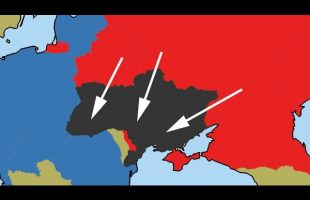Stop leaving yourself vulnerable to data breaches. Go to my sponsor https://aura.com/adayinhistory to get a 14-day free trial and see if any of your data has been exposed
Anyone who follows the Israel-Palestine conflict should recognize the name of the former Grand Mufti of
Jerusalem, Amin al-Husseini. A major figure in the emergence of Palestinian nationalism, he is as
controversial as he is important. Why? Because Amin al-Husseini spent the Second World War working
for the Nazis, running propaganda, recruiting Muslims into the SS, and actively supporting the Holocaust.
When the Second World War broke out in September 1939, the British pegged al-Husseini as a potential source of disruption and planned to find and arrest him before he could make any alliances with Germany.
To avoid this he fled Lebanon by disguising himself as a woman and went into exile to Iraq. Iraq was a reliable hotbed of anti-British feeling with strong Palestinian sympathies, and they welcomed him with open arms. Using his existing popularity, al-Husseini lent his support to anti-British elements in Iraq’s government and ultimately ensured the accession of the anti-British Rashid ‘Ali as Prime Minister.
Al-Husseini realised that the war presented the perfect opportunity to agitate not just for Palestinian causes, but pan-Arab nationalism. A German victory looked likely in the early months of the war, and he wanted to be ready to take advantage of the disintegration of the British and French empires when it came. Therefore, in late 1939 he established the Hizb al-Umma al-Arabiyyah, the Arab National Party, to unify the disparate Arab nationalist movements under one banner. Al-Husseini had the political capital to do so and insisted on allying with the Nazis to secure their for Arab independence.
Al-Husseini sent his personal secretary to meet with the Germans in the summer of 1940, first in Turkey, and then to meet Nazi Foreign Minister Joachim von Ribbentrop in Berlin. Al-Husseini suggested that the Nazis should make a declaration of support for Arab independence, which would inspire armed revolts in the Muslim world that would only weaken the British even more.
Germany didn’t leap at the chance. Its allies like Italy and Vichy France had their own ambitions in Arab North Africa that the Nazis did not want to interfere with. Al-Husseini persisted, however, writing directly to Hitler in January 1941 with a new line of attack: it wasn’t just anti-British feeling they shared, but anti-semitic. The struggle in Palestine was, al-Husseini wrote to the Führer, a shared struggle with Germany against the Jews, quote, “whose secret weapons – finance, corruption, and intrigue – were aligned with British bayonets.”
#hitler #alhusseini #palestine #holocaust
Sources:
David Motadel,. Islam and Nazi Germany’s War, (2014)
Zvi Elpeleg, The Grand Mufti: Haj Amin al-Hussaini, Founder of the Palestinian National Movement, (1993)
Klaus Geniscke, The Mufti of Jerusalem and the Nazis: The Berlin Years, (2011)
Gerhard Hopp, ‘In The Shadow of the Moon: Arab Inmates in Nazi Concentration Camps,’ in Wolfgang G. Schwanitz (ed.), Germany and the Middle East, 1871-1945, (2004)
Copyright © 2025 A Day In History. All rights reserved.
DISCLAIMER: All materials in these videos are used for entertainment purposes and fall within the guidelines of fair use. No copyright infringement intended. If you are, or represent, the copyright owner of materials used in this video, and have an issue with the use of said material, please send an email to adayinhistory2021@gmail.com


